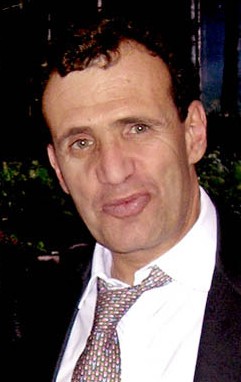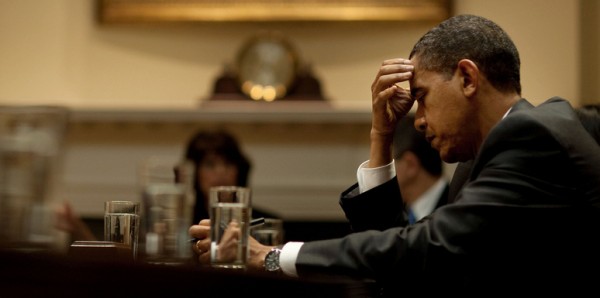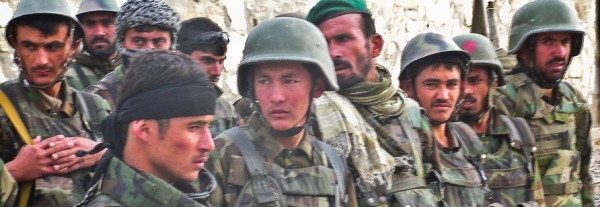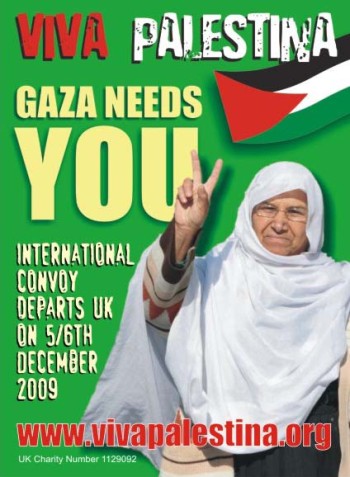Renouncing Islamism: To the brink and back again
By Johann Hari, The Independent, November 16, 2009
As the summer arrives and London begins to swelter, I sit with most of the “out” ex-jihadis in a slew of Starbucks across the city. We sip iced lattes and discuss how, not long ago, they tried to destroy Western civilisation.
They have different backgrounds: one is a Yorkshire girl with Hindu parents, another is a Northern boy whose father was a Conservative ultra-Thatcherite. Yet they are startlingly similar: they have all retained the humourless intensity of their pasts. And when they describe their Islamist former selves, they are distant and cold, as if describing a rather unpleasant acquaintance they did not entirely understand.
They wreath their stories in clouds of pointless detail: they talk for hours about the intricacies of seventh-century Meccan society, or the fine distinctions in the hierarchy of HT, willing you to understand it. It’s a way of avoiding answering the hardest question – why? But from their scattered stories, I can trace something that seems genuinely new: an ex-jihadi way of looking at the world, that carries lessons about how to stop Western Muslims sinking into jihadism.
As children and teenagers, the ex-jihadis felt Britain was a valueless vacuum, where they were floating free of any identity.
Ed Husain, a former leader of HT, says: “On a basic level, we didn’t know who we were. People need a sense of feeling part of a group – but who was our group?” They were lost in liberalism, beached between two unreachable identities – their parents’, and their country’s. They knew nothing of Pakistan or Saudi Arabia or the other places they were constantly told to “go home” to by racists.
Yet they felt equally shut out of British or democratic identity. From the right, there was the brutal nativist cry of “Go back where you came from!” But from the left, there was its mirror-image: a gooey multicultural sense that immigrants didn’t want liberal democratic values and should be exempted from them. Again and again, they described how at school they were treated as “the funny foreign child”, and told to “explain their customs” to the class. It patronised them into alienation.
“Nobody ever said – you’re equal to us, you’re one of us, and we’ll hold you to the same standards,” says Husain. “Nobody had the courage to stand up for liberal democracy without qualms. When people like us at [Newham] College were holding events against women and against gay people, where were our college principals and teachers, challenging us?”
Without an identity, they created their own. It was fierce and pure and violent, and it admitted no doubt.
To my surprise, the ex-jihadis said their rage about Western foreign policy – which was real, and burning – emerged only after their identity crises, and as a result of it. They identified with the story of oppressed Muslims abroad because it seemed to mirror the oppressive disorientation they felt in their own minds. Usman Raja, a bluff, buff boxer who begged to become a suicide bomber in the mid-1990s, tells me: “Your inner life is chaotic and you feel under threat the whole time. And then you’re told by Islamists that life for Muslims everywhere is chaotic and under threat. It becomes bigger than you. It’s about the world – and that’s an amazing relief. The answer isn’t inside your confused self. It’s out there in the world.”
But once they had made that leap to identify with the Umma – the global Muslim community – they got angrier the more abusive our foreign policy came. Every one of them said the Bush administration’s response to 9/11 – from Guantanamo to Iraq – made jihadism seem more like an accurate description of the world. Hadiya Masieh, a tiny female former HT organiser, tells me: “You’d see Bush on the television building torture camps and bombing Muslims and you think – anything is justified to stop this. What are we meant to do, just stand still and let him cut our throats?”
But the converse was – they stressed – also true. When they saw ordinary Westerners trying to uphold human rights, their jihadism began to stutter. Almost all of them said that they doubted their Islamism when they saw a million non-Muslims march in London to oppose the Iraq War: “How could we demonise people who obviously opposed aggression against Muslims?” asks Hadiya.
Britain’s foreign policy also helped tug them towards Islamism in another way. Once these teenagers decided to go looking for a harder, tougher Islamist identity, they found a well-oiled state machine waiting to feed it. Usman Raja says: “Saudi literature is everywhere in Britain, and it’s free. When I started exploring my Muslim identity, when I was looking for something more, all the books were Saudi. In the bookshops, in the libraries. All of them. Back when I was fighting, I could go and get a car, open the boot up, and get it filled up with free literature from the Saudis, saying exactly what I believed. Who can compete with that?”
He says the Saudi message is particularly comforting to disorientated young Muslims in the West. “It tells you – you’re in this state of sin. But the sin doesn’t belong to you, it’s not your fault – it’s Western society’s fault. It isn’t your fault that you’re sinning, because the girl had the miniskirt on. It wasn’t you. It’s not your fault that you’re drug dealing. The music, your peers, the people around you – it’s their fault.”
Just as their journeys into the jihad were strikingly similar, so were their journeys out. All of them said doubt began to seep in because they couldn’t shake certain basic realities from their minds. The first and plainest was that ordinary Westerners were not the evil, Muslim-hating cardboard kaffir presented by the Wahabis. Usman, for one, finally stopped wanting to be a suicide bomber because of the kindness of an old white man.
Usman’s mother had moved in next door to an elderly man called Tony, who was known in the neighbourhood as a spiteful, nasty grump. One day, Usman was teaching his little brother to box in the garden when he noticed the old man watching him from across the fence. “I used to box when I was in the Navy,” he said. He started to give them tips and before long, he was building a boxing ring in their shed.
Tony died not long before 9/11, and Usman was sent to help clear out his belongings. In Tony’s closet, he found a present wrapped and ready for his little brother’s birthday: a pair of boxing gloves. “And I thought – that is humanity right there. That’s an aspect of the divine that’s in every human being. How can I want to kill people like him? How can I call him kaffir?”
Many of the ex-Islamists discovered they couldn’t ignore the fact that whenever Islamists won a military victory, they didn’t build a paradise, but hell.
At the same time, they began to balk at the mechanistic nature of Wahabism. Usman says he had become a “papier-mâché Muslim”, defining his faith entirely by his actions, while being empty inside. “Wahabis are great at painting themselves [an Islamic] green on the outside, but when it comes to that internal aspect, it’s not there. You pray five times a day, but why? Because God’s told you to pray five times a day. You pay your charity – why? Because God’s told you to pay your charity. This God of yours is telling you a lot. And why does he tell you to do that? Because if you don’t do it, you’ll end up in a fire. It’s all based on being frightened. There’s nothing to nourish you.”
They had to go looking for other Islams – and often they found it in the more mystical school of the Sufis. “Wahabi Islam is totally sensory: eye for an eye, tooth for a tooth,” Usman says. “It lays out a strict set of rules to be followed here on earth, every moment of the day. Sufi Islam teaches instead that the realm of Allah is wholly separate and spiritual and nothing to do with the shadow-play of mere mortals. It is accessible only through a sense of mystery and transcendence.” In this new Sufi Islam, Usman found something he had never known before: a sense of calm.
Ed Husain insists: “There are a lot of Muslims who agree with us. A lot. But they’re frightened. They see what’s happened to us – the hassle, the slander, the death threats – and they think: it’s not worth it. But you know what? When I first spoke out, I was alone. I had no idea that, a year on, there would be this number of people speaking out, and many more who are just offering resources and support. Once a truth is spoken, it takes on its own life.” [continued…]
Post-jihadism and the inevitability of democratization
By Omar Ashour, Carnegie Endowment, November, 2009
Major ‘Abbud al-Zumur, the former military intelligence officer who served on the governing bodies of both the Jihad organization and al-Gama‘a al-Islammiyya (Islamic Group – IG) in Egypt, published a book entitled The Third Alternative: Between Authoritarianism and Surrender in August 2009. In the book, which analyzes the causes of violent radicalism and prescribes ways of ending political violence within Arab- and Muslim-majority states, al-Zumur strongly argues for the necessity of electoral participation as well as for alliances with the ideological “other.”
The book is the latest development in what can be called a second wave of modern Islamist de-radicalization. The leadership of the Muslim Brotherhood began the first wave by authoring Preachers not Judges in 1969, during an attempt to dismantle the Brotherhood’s armed wing and de-legitimize takfiri ideology (which can legitimize violence against nonbelievers, including Muslims who are deemed apostates). The IG began the second wave in July 1997, and in recent years has produced some 25 books to de-legitimate violence against the state. Those ideological revisions were followed by similar ones from various organizations including al-Jihad, the Libyan Islamic Fighting Group (LIFG), and several other Islamist leading figures in the Arab-majority countries. [continued…]


 ritain’s most active pro-Israeli lobbying organisation – which flies journalists to Israel on fact-finding trips and organises access to senior government figures – has received nearly £1.4m in two years from a billionaire donor whose father made a fortune manufacturing arms in Israel.
ritain’s most active pro-Israeli lobbying organisation – which flies journalists to Israel on fact-finding trips and organises access to senior government figures – has received nearly £1.4m in two years from a billionaire donor whose father made a fortune manufacturing arms in Israel.

 n March 9,
n March 9,